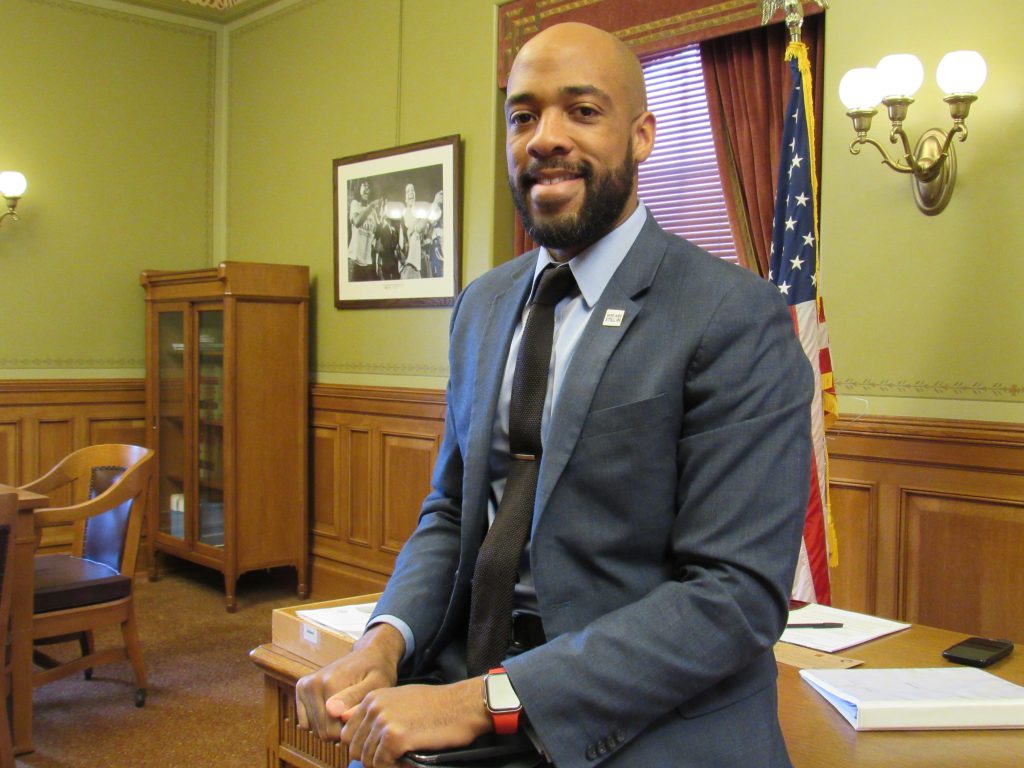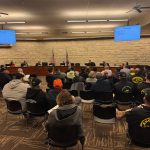Coalition Forming Around State’s Climate Goals
Agriculture industry, environmental advocates and political leaders share goals of Climate Change Task Force report.
Adapting to climate change in Wisconsin remains a uniting cause across the state. Climate change related issues have effects on everything from industry to the very cycles of nature. Particularly for states like Wisconsin, which depends economically on agriculture and natural spaces, matters are pressing and the clock is ticking. That’s why on the heels of the governor’s climate change task force releasing a comprehensive report last week agriculture groups are organizing alongside environmental groups around water quality.
“The final report from the Climate Change Task Force is a robust and comprehensive game plan for the state to not only reduce carbon emissions,” says Amber Meyer Smith, vice president of programs and government relations for Clean Wisconsin, “but stimulate our economy, protect public health, and create jobs.” Smith, who is a member of the task force, added, “I’m proud of this report.”
The Evers administration has consistently made climate adaptation a priority statewide. With a goal of fully moving to clean and renewable energy by 2050, the state has encouraged the private sector to follow suit.
In a statement made on Dec. 11 alongside other Wisconsin agricultural organizations Chris Pollack, a member of the Wisconsin Farm Bureau Federation said, “Wisconsin agriculture plays a vital role in addressing conservation, innovation and implementing climate-smart practices. As a farmer myself, I appreciate having a seat at the table to identify ways of reducing our carbon footprint and continuing our commitment to protect our climate and the natural resources our livelihood relies on.”
Among the issues covered in the 120-page climate report is the preservation of clean drinking water. Groundwater contamination through nitrogen and phosphorus run-off is a serious problem in Wisconsin. Much of this contamination stems from farm-raised cattle and livestock. Not only due to run-off, but also manure spills which can unintentionally dump thousands of gallons of waste into waterways. The Wisconsin Legislature, through climate and water quality task forces, has explored an incentive system to help stimulate industry change.
“Projects that reduce these nutrient losses hold potentially significant financial value, generating credits that can be purchased by entities that need them,” the climate report states, “including wastewater permit holders, counties pursuing nutrient reductions with funds from wastewater discharges with temporary variances, and lake districts and associations formed to protect water bodies that may have access to funding from their members whose property values would benefit from water quality improvements.”
Seemingly unrelated climate issues are tied together, the report states in an opening letter written by Barnes. “Since I took office,” he writes, “much of my time as lieutenant governor has been spent learning about the impact climate change has been having on our state. Extreme weather generates a costly toll on farmers and their crops. Flooding is impacting homes, infrastructure, and water quality. Deadly cold spells have shut down our state. And our Great Lakes are experiencing a period of record-high water levels, which has grave consequences for coastal ecosystems and will cost communities millions of dollars.”
“The same agronomic practices that increase carbon sequestration also can help mitigate flood events, protect water quality, recharge groundwater, and increase resilience to drought. Recognizing the societal importance of food production, land managers and policy makers must strive to balance the protection of ecosystems for climate mitigation and other environmental co-benefits with the need to optimize agricultural management to feed a growing world population,” Barnes writes. “The state of Wisconsin is a critical piece of this puzzle.”
Following the report’s release, the Dairy Business Association joined Clean Wisconsin and other groups to announce a renewed joint-lobbying effort around maintaining water quality. “The challenges facing our drinking water and farming communities are serious and urgent,” says Mark Redsten, president of Clean Wisconsin. “We know that we all share a common interest.” Tom Crave, president of the Dairy Business Association adds that, “for too long these have been competing interests, especially when it comes to regulation. It’s time for change.”
Forming partnerships around the state’s eco-issues has also helped various communities around Wisconsin find common ground. “Wisconsin farmers are proud of their continuing efforts to use climate-smart practices,” says Robert Nigh, District 3 board member with the Wisconsin Farm Bureau Federation. “Including involvement in producer-led watershed groups, planting cover crops and utilizing no-till and reducing tillage of fields. We have been at the forefront of flood and erosion control, protection and preservation of water quality and other innovations that protect the environment. Farmers are pleased to be at the table during the discussions surrounding climate change and look forward to making a positive impact through climate-smart practices.”
Bill Hogseth, watershed and organizing coordinator for the Wisconsin Farmers Union echoed how inherently linked many of these issues and initiatives are. “Climate mitigation and rural prosperity are undeniably linked, and, increasingly farmers recognize the role of sustainable practices in mitigating climate change. We need bold efforts to address the effects of climate change, and these recommendations issued by the task force are an important step forward in promoting practices that enable farmers to be climate champions.”
Looking onward into 2021 and beyond, these partnerships and the foundation laid out by the climate report will only continue to develop. “The people are ready for change,” said Lt. Gov. Barnes. “The people are demanding change. Farmers are choosing more sustainable agricultural practices. Utility companies are investing in renewable energy. And our local communities are reforming their policies to promote greener, cleaner economies.”
Reprinted with permission of Wisconsin Examiner.






















